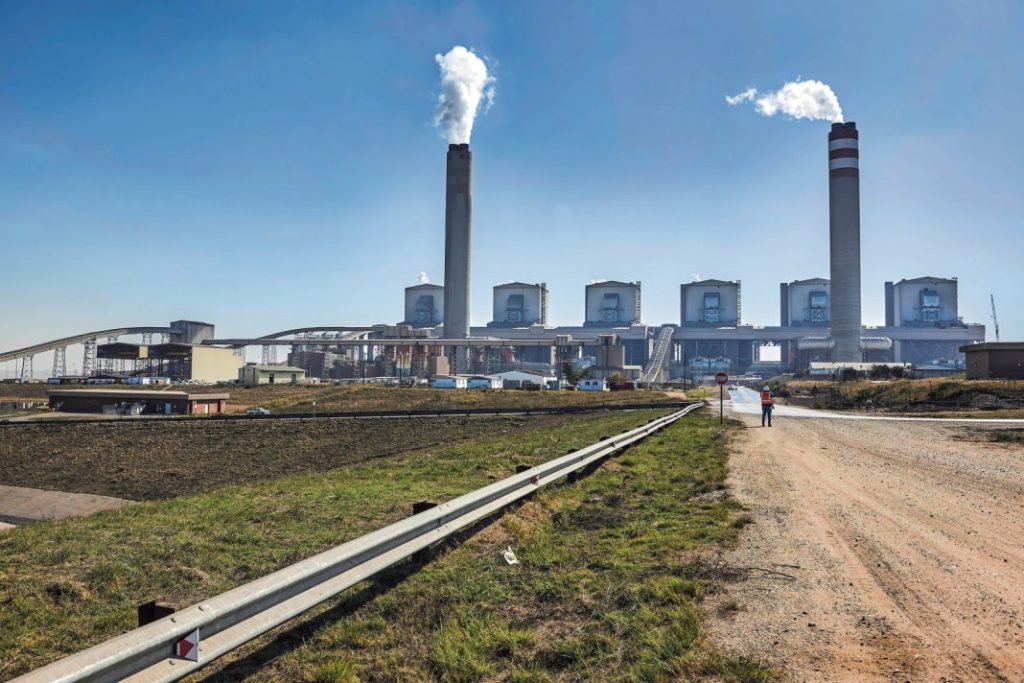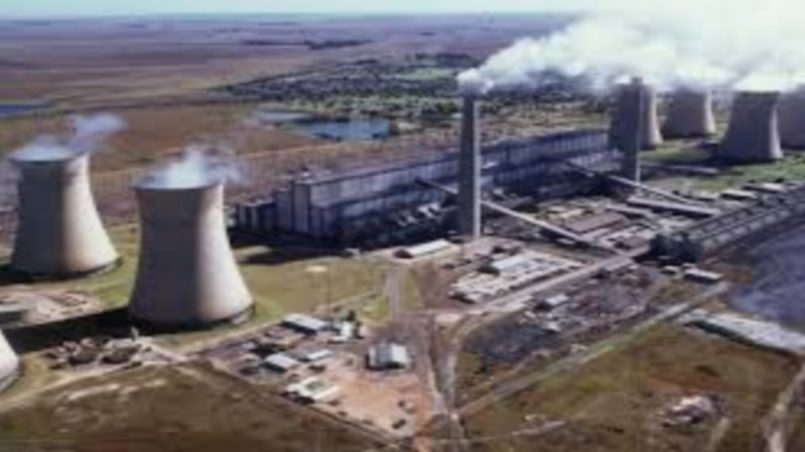This week, the treasury and Finance Minister Enoch Godongwana announced that Eskom would be exempted from reporting irregular, fruitless and wasteful expenditure in its financial statements — but it must report this in its annual report. Opposition parties, trade unions and energy commentators expressed concern about how this would play out.

There were fears that the decision would lead to more corruption, something to which Eskom is no stranger.
That exemption has since been temporarily withdrawn. Godongwana said the decision was made after a meeting with MPs on Wednesday where a discussion was had with the auditor general Tsakani Maluleke. Sarah Smit reported that the gazette has been withdrawn, pending detailed consultations with the auditor general, as well as Eskom’s auditors.
The parastatal has a history of corruption and irregular expenditure. One only has to watch the eNCA interview with Eskom’s former chief executive, Andre de Ruyter, during which he said Eskom was losing about R1 billion a month to corruption and theft, to see that.
There was also corruption linked to the Gupta family. The Zondo commission of inquiry into state capture found that former president Jacob Zuma was a “critical player” in the Gupta’s plan to capture Eskom.
Relating to irregular expenditure, my colleague Mandisa Nyathi reported the following yesterday: “The utility’s previous financial statements showed that in the year to end-March 2020 Eskom recorded irregular expenditure of R11.2 billion (mostly because of modifications of contracts), fruitless and wasteful expenditure of R2.3 billion and losses of R2.2 billion as a result of crime.”
Given how irate the opposition and the public were, there will be no shortage of people happy about the U-turn on reporting.
The energy precarity
Remember how, in mid-March, at the time of the Economic Freedom Fighters’ so-called national shutdown, the coal stations performed better than usual? At the time, Eskom announced: “Load-shedding will be suspended, where possible, over the weekend and varied between stages one and two for other periods.”
Those were good times. Suspicious, but good.
There are rumours that the utility is burning much more diesel than it should. Here’s what Mandisa Nyathi is reporting.
“Sources in the Eskom generation unit have warned that Eskom has been burning more diesel to keep the lights on and decrease the load-shedding stages.
“The utility is in a deeper hole than it lets on, we had to burn a lot of diesel to keep the lights on, especially during the national shutdown in March. This worked because the protest went smoother than we expected. But what I can say is this is not sustainable. We are looking at more sustainable ways to improve the generation before winter months,” an Eskom source said.
Ah, but wait, it gets worse.
BusinessTech reported recently that Eskom’s energy outlook for next year is not good. “Eskom projected that load-shedding would be at stage four for most of the year.”
It’s alarming that we went from basically no load-shedding two weeks ago to sudden high levels — and even worse predicted for winter. Some analysts are concerned that we could see levels higher than stage six during the winter months.
Other Eskom troubles
You didn’t think those were all Eskom’s problems, did you? The utility recently had to pay a R950 million penalty to French firm Framatome. The supreme court of appeal ruled that the utility had to pay Framatome for being in breach of a contractual agreement by failing to pay the company what was due to them.
Eskom has a contract with the firm to replace six steam generators at Koeberg Nuclear Power Station in Cape Town. Nyathi reported that Eskom and Framatome’s relationship soured because of contractual disputes that have been before the courts.
In 2021, Framatome took Eskom to court for being in breach of a provision for what is called “compensation events”, which allowed Framatome to claim additional payment and extra time to do the work from Eskom.
Compensation events entitle the contractor to be compensated for any effect the event has on the prices and the contractual sectional completion dates or key dates.
The minister for electricity
Kgosientsho Ramokgopa, the new minister for electricity, recently said technical issues were to blame for the electricity crisis. He refused to acknowledge corruption as an issue. Then, the ruling ANC recently voted against a probe into allegations of corruption and criminal cartels operating at Eskom.
This follows the recent arrest of four individuals, as IOL reported: “Nozipho Ntuli, 35, George Edward Sekatane, 43, Alfred Lebohang Sekatane, 60, and Thulani Harris Mkhabela, 40, were arrested during a joint operation by the Secunda-based Hawks’ Serious Corruption and Serious Commercial Crime Investigation teams at Witbank on charges of fraud and corruption.”
It seems our leaders are doing what they can to avoid talking about corruption at Eskom. Also, it is suspicious that Eskom is exempt from reporting irregular expenditure, despite assurances from the national treasury on corruption.
“Eskom will abide by the conditions and strict monitoring requirements imposed by National Treasury in granting the exemption,” said Eskom’s acting group chief executive, Calib Cassim, as reported by BusinessTech.
It could be because De Ruyter fingered high-ranking members of parliament in his interview. There are also reports that The Hawks are looking into the allegations he made.
We need to keep a keen eye on corruption at Eskom. At the same time, we need to hold them accountable for energy availability and load-shedding
Get South Africa’s latest entrepreneurial or business success stories delivered right to your inbox — Sign up to Entrepreneur Hub SA’s newsletter today

eBook: 50 South African Entrepreneurs Reveal HOW THEY MADE IT





Wow, wonderful weblog structure! How lengthy have you been blogging for?
you made blogging look easy. The full look of your web
site is great, as well as the content! You can see similar here
sklep online
Hey! Do you know if they make any plugins to help
with Search Engine Optimization? I’m trying to
get my website to rank for some targeted keywords but I’m not seeing very good gains.
If you know of any please share. Thank you! I saw similar blog here: Backlinks List
Wow, amazing blog format!
How lengthy have you been blogging for? you
make blogging glance easy. The full glance of your web site is fantastic,
as smartly as the content! I read similar here prev next and that was wrote
by Zelda68.
Wow, superb weblog format!
How lengthy have you been running a blog for? you made blogging look easy.
The full glance of your site is excellent, let alone the content material!
I read similar here prev next
and those was wrote by Noe77.
Wow, superb blog layout!
How long have you ever been running a blog for? you make blogging look easy.
The overall look of your site is great, as well as the content material!
I read similar here prev next and those
was wrote by Damien69.
Wow, awesome weblog format!
How long have you ever been running a blog for? you
made blogging glance easy. The total glance of your web site is great,
as well as the content! You can read similar here Constance Syh7.
2024/04/23